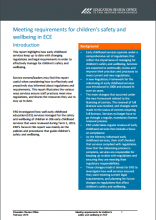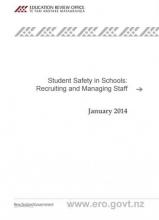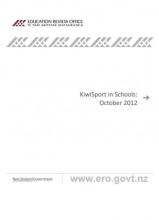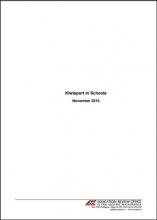Bullying Prevention and Response in New Zealand Schools May 2019
New Zealand schools have one of the highest rates of bullying among OECD member countries. In this evaluation, ERO looked at the extent to which schools were effectively working towards an environment in which students feel safe and free from bullying.
A companion report to this one, Bullying Prevention and Response: Student Voice focuses on ERO’s survey of students on their experience and understandings of bullying and effective bullying prevention and response.








